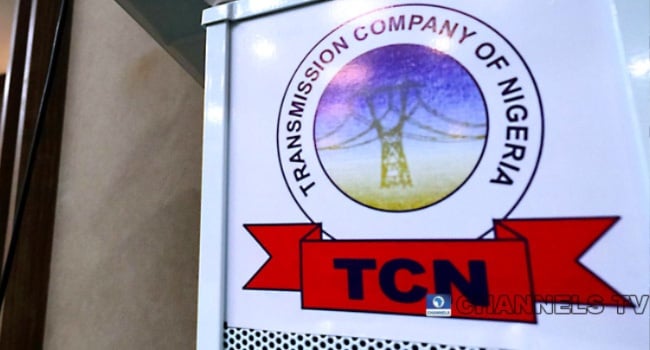Publicly-listed commercial banks would need over N2.81 trillion to meet the recapitalisation target set by the Central Bank of Nigeria (CBN).
On March 29, CBN announced an upward review of the minimum capital requirements for commercial, merchant and non-interest banks.
The development is coming more than four months after Olayemi Cardoso, governor of the CBN, said the financial regulator will direct banks to recapitalise.
CBN said the banking sector recapitalisation programme is a regulatory initiative of the financial regulator that requires banks to increase their minimum paid-in common equity capital to a specified amount according to their license category and authorisation within a specified period of time.
Advertisement
WHY THE RECAPITALISATION MATTER?
Recapitalisation means banks need to raise more funds to ensure they have a robust capital base to absorb unexpected losses.
Also, by increasing the minimum capital requirements, the banks will have the capacity to contribute to the growth and development of the Nigerian economy.
Advertisement
The apex bank said the increase was necessary due to prevailing macroeconomic challenges and headwinds occasioned by external and domestic shocks.
According to the CBN, recapitalisation would stabilise banks’ capital structure and secure shareholders’ funds.
NEW CAPITAL BASE
The capital base for commercial banks with international licences was adjusted to N500 billion, while the minimum capital requirements for national and regional licence holders were pegged at N200 billion and N50 billion, respectively.
Advertisement
Also, CBN raised the minimum capital requirement of merchant banks with national licences to N50 billion.
The financial regulator said the new capital base for national and regional non-interest banks is N20 billion and N10 billion, respectively.
REQUIREMENTS TO MEET THE TARGET
To meet the minimum capital requirements, CBN advised banks to consider the injection of “fresh equity capital through private placements, rights issue and/or offer for subscription”.
Advertisement
CBN said the banks also have the option of merger and acquisition (M&A) to meet the requirement, with another alternative being downgrading to a licence that meets their capital base.
The banks were given two years (April 1, 2024, to March 31, 2026) to meet the new capital requirement.
Advertisement
CBN also requested banks share their plans to meet the capital requirement by April 30.
AMOUNTS BANKS NEED TO RAISE TO MEET TARGET
Advertisement
Based on data from the financial results of the banks for the third quarter (Q3) and fourth quarter (Q4) of 2023, TheCable understands commercial banks have to raise N2.81 trillion to meet the new capital base.
Different quarters were used as some banks were yet to release their full-year (FY) financial statements.
Advertisement
At the forefront of the list is Zenith Bank, which has a capital base of N270.75 billion, according to its Q3 earnings report, and needs a sum of N229.25 billion to reach the benchmark of N500 billion.
With a capital base of N251.81 billion, Access Bank, based on its audited financial statement for last year, requires N248.19 billion to close up on the minimum capital requirements for international licence holders.
Similarly, First Bank of Nigeria (FBN) would have to raise N248.66 billion to meet the target of N500 billion, as it currently has a capital base of N251.31 billion, according to the FY audited financial statement.
Also, Fidelity Bank requires N370.70 billion to meet the N500 billion requirement, as its capital base stands at N129.71 billion, according to its unaudited Q4 financial statement.
In its Q3 financial statements, Guaranteed Trust Bank (GTB) has a capital base of N138.19 billion and would require N361.81 billion to meet the half-a-trillion naira requirement.
Likewise, the United Bank for Africa (UBA), as reported in its Q3 financial result, has a capital base of N115.82 billion, which is N384.19 billion below the requirement for international licence holders.
However, in its unaudited FY financial results 2023, First City Monument Bank (FCMB) has N125.29 billion as a capital base, falling short of the requirement for international licence holders by N374.71 billion.
Meanwhile, the Q3 financial statements of Ecobank, a national licenced creditor, showed the financial institution has a capital base of N353.51 billion, surpassing the minimum capital requirements of N200 billion — having an excess of N153.51 billion.
Stanbic IBTC Bank, another national licence holder, has a capital base of N109.26 billion based on its Q4 unaudited financial results — this means it is N90.74 billion short of the required N200 billion.
Also, Sterling Bank, which falls under the national category, has to raise N142.85 billion, as the company’s current capital base is N57.15 billion based on figures from its unaudited FY financial statements for 2023.
In this same category, Wema Bank, according to its unaudited FY financial statements, has a capital base of N15.13 billion and has to meet the new benchmark of N200 billion by raising N184.17 billion.
In addition, Unity Bank, in its Q3 financial statements last year, disclosed it has a capital base of N16.33 billion, which is N183.67 billion below the requirement for national licence holders.
Add a comment






